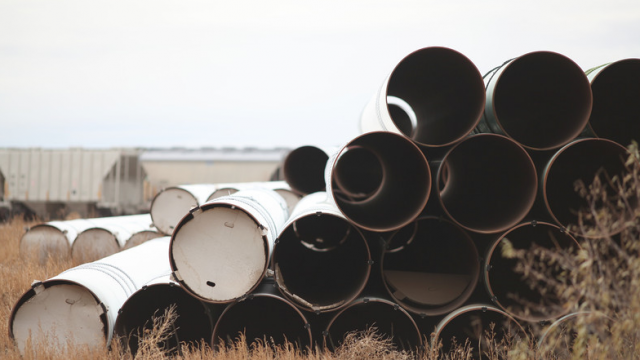Katie Tubb: Why The Dollars And Cents Of Keystone Matter

Anyone familiar with the Keystone XL Pipeline debate is familiar with the name Tom Steyer. The billionaire has spent millions on his campaign fighting the Keystone XL Pipeline and its alleged contribution to global warming. He and others along with him have pledged $100 million in campaign funds to candidates taking a stand against global warming this year and will likely spend millions more before this battle is fought out.
But can he replace the billions of dollars in positive economic impact the pipeline is expected to create, or the billions more in tax revenues Montana, South Dakota, Nebraska, Kansas, Oklahoma, and Texas are projected to collect over the operating life of the pipeline?
It’s not just about cold dollars and cents. Keystone could create thousands of jobs and the southern portion, which didn’t need a presidential permit, has already employed some 4,000 people. And that isn’t even considering the additional work for businesses that support the project – from pipe manufacturers to local diners and real estate agents. Opponents are quick to quibble that these are temporary jobs – a statement about as helpful as reminding us that the sun rises in the east. Construction jobs by nature are temporary jobs. What is important is that Keystone is yet one more opportunity for someone to work in an economy that is painfully recovering.
Over the past 10 years, oil, coal, and natural gas have supplied 87 percent of the energy America uses. These conventional fuels are simply the most energy efficient, inexpensive, and abundant energy sources. But even if one were to assume climate alarmists’ models are correct (though they give us very little reason to assume this) and politicians decide to cut all U.S. carbon dioxide emissions today—no Keystone XL Pipeline, no driving or flying, no running factories, stores or homes unless they run on nuclear power—this would only decrease world temperatures by 0.08 degrees Celsius by the year 2050.
Regardless, wouldn’t we want people to have good paying jobs so that they have the means to respond and care for themselves if global warming does become a problem? They certainly can’t depend on the federal government to come to the rescue as victims of Hurricane Sandy, caused by global warming according to activists, are learning the hard way.
While the Obama Administration has delayed a final decision using every excuse in the book to appease the well-funded environmental left, the ranks in favor of the pipeline are growing. Former Secretary of the Interior Ken Salazar, former Secretary of Energy Steven Chu, and the President of the AFL-CIO Richard Trumka have all spoken in favor of the pipeline, noting that it isn’t an environmental issue but a political one. Democrats in both the House and the Senate have bucked the party line and supported the pipeline and even editorial boards like the Washington Post’s have called the delay “embarrassing.” According to a Rasmussen poll, 61 percent of Americans are in favor of finishing the pipeline.
The can’ts, won’ts, and better nots opposing the Keystone XL Pipeline ignore a whole host of reasons why the Keystone XL Pipeline should have been approved years ago. While it’s important to study the environmental and economic impacts of such a large project and to assure that best practices will be followed (as has been done with Keystone), it’s high time the President approve the pipeline or that Congress do it for him.




